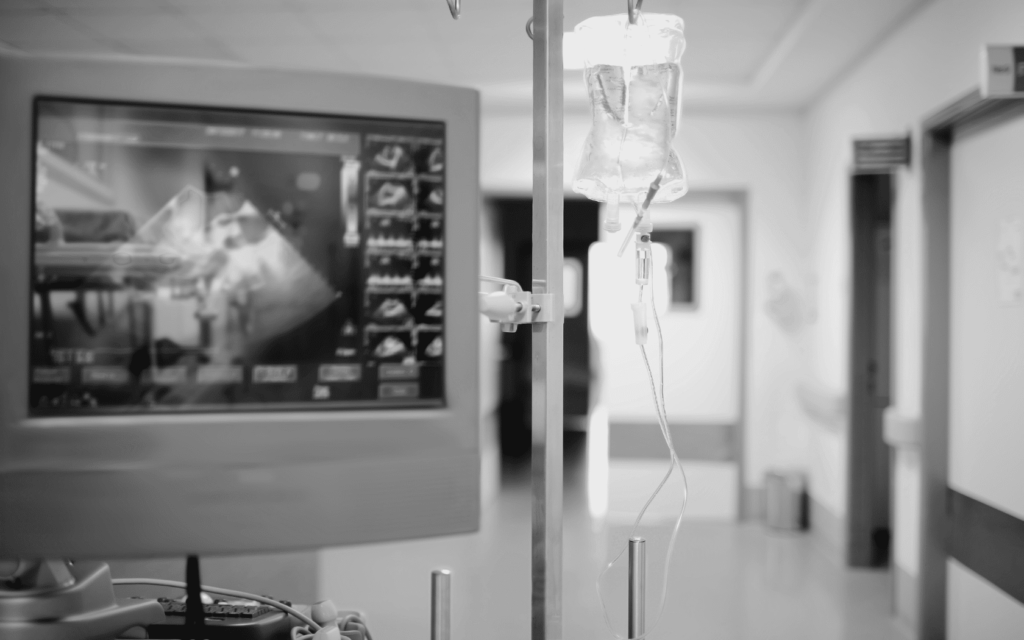If a doctor makes a mistake and injures you, that’s who you should go after with a lawsuit. Right? Not necessarily. Your hospital could also be responsible for the error.
Just like doctors, medical institutions can find themselves in legal hot water. From medication errors to private info leaks, to unfair treatment, let’s uncover the top reasons to sue a hospital.

When Can You Sue a Hospital?
Can you sue a hospital when a doctor or other staff member is negligent and harms you? If the perpetrator is an employee at that hospital, you probably can. Hospitals are often legally responsible for the errors their employees commit. After all, the hospital trains and manages them. There could be systemic issues that make a hospital’s employees more likely to commit errors.
What if the negligent doctor is an independent contractor? If that’s the case, usually the doctor is the only one liable for medical malpractice. But you might be able to bring negligent hiring claims against the hospital.
What Are Some Valid Reasons to Sue a Hospital?
We’ll cover more reasons below, but let’s start with the most common causes for lawsuits against hospitals. These include:
- Wrongful Death: If your loved one dies due to a hospital’s negligence, you may file a wrongful death lawsuit.
- Defective Equipment or Facilities: You were injured from the use of faulty equipment or unsafe facilities within the hospital.
- Misdiagnosis or Delayed Diagnosis: You were harmed because the doctor got your diagnosis wrong, or took too long to identify your condition.
- Failure to Obtain Informed Consent: Hospitals must inform patients about a medical procedure’s risks and benefits.
- Surgical Errors: Mistakes during surgery, like leaving instruments inside a patient after surgery, or operating on the wrong site, are likely grounds for a lawsuit against the hospital.
- Negligent Hiring, Training, or Supervision: You can sue a hospital for hiring an unqualified doctor who harmed you. Failure to train or supervise employees is also a valid reason to sue a hospital.
- Hospital-Acquired Infections: You may have grounds to sue if you get sick from inadequate sanitation or hygiene practices in a hospital.
- Medication Errors: Hospitals dispense numerous medications to numerous patients daily. Mix-ups happen—more than 100,000 times a year, according to the Food and Drug Administration (FDA).
- Discrimination: Providing poor treatment or no treatment because of a patient’s race or sexual orientation may be grounds for a lawsuit.
Note that these aren’t the only reasons to sue a hospital. They are simply the most common. If what happened to you doesn’t fit any of the categories above, you might still have a valid case. You should contact a legal expert in hospital negligence to be sure.

Hospital Liability in Malpractice Cases
Let’s take a look at an example case in which a patient has valid reasons to sue a hospital for negligence. Jane, a 45-year-old woman, is scheduled for a routine gallbladder removal surgery at City General Hospital. Dr. Smith, the assigned surgeon, has a busy schedule that day. Despite the rush, Dr. Smith proceeds with Jane’s surgery. He doesn’t take the time to review her medical history thoroughly.
During the surgery, Dr. Smith makes an error in identifying the anatomy, mistakenly cutting into the common bile duct instead of the gallbladder. This mistake leads to serious complications, including severe bleeding and damage to surrounding organs. As a result, Jane’s recovery takes much longer. She has to have additional surgeries and stay in the hospital for weeks.
Faced with an avalanche of hospital bills, Jane hires a lawyer. The attorney’s investigation shows Dr. Smith didn’t follow the standard procedures and protocols for pre-operative preparation. He didn’t conduct a review of her medical history and proper verification of the surgical site.
The hospital might be liable for Dr. Smith’s negligence because he was acting within the scope of his employment. Jane’s lawyers could also argue that the hospital was understaffed, causing Dr. Smith to rush.
When Hospitals Aren’t Liable for Malpractice
Now let’s consider an example where the hospital may not be liable. John, a 60-year-old man with a history of heart problems, consults Dr. Anderson, a cardiologist and independent contractor. Dr. Anderson prescribes medicine that has adverse interactions with John’s existing medications.
John experiences worrisome side effects, like dizziness and increased heart rate. That’s when he decides to get a second opinion. A second cardiologist sees the mistake right away. He prescribes John the right medication.
In this scenario, the hospital may not be directly liable for malpractice. Dr. Anderson is an independent contractor. Also, the prescription error was an isolated incident. It wasn’t a result of issues within the hospital’s policies. So John would likely sue Dr. Anderson as an individual.

Other Reasons to Sue a Hospital
There are many reasons to sue a hospital other than for medical malpractice. These include:
- Failing to exercise due diligence in hiring, or failing to supervise staff.
- Violating patient confidentiality by disclosing your medical information without your consent.
- Injuring you with faulty equipment or unsafe conditions.
- Making mistakes in the billing process, such as charging you for services you weren’t provided, and failing to correct them.
- Abuse or neglect by hospital staff.
- Committing a breach of contract (not providing agreed-upon services or accommodations to you).
If you’re unsure whether you have a valid reason to sue a hospital or not, give our expert lawyers a call. We’re here to lend a compassionate ear and a helping hand when you need it most.
FAQs on Reasons to Sue a Hospital
You can sue a hospital if a staff member’s negligence harms you. Hospitals are often liable for the errors their employees make.
Common reasons include wrongful death, getting injured by defective equipment, misdiagnosis, failure to obtain informed consent, negligent surgical errors, hospital-acquired infections, medication errors, and discrimination.
If a hospital staff member makes a negligent error and you’re harmed as a result, you can sue your hospital for medical malpractice. If you’re unsure whether you have a valid reason to sue a hospital, contact a competent medical malpractice attorney to evaluate your case.
If you receive substandard or no treatment because of your race or sexual orientation, you may have grounds for a lawsuit.
There are several valid reasons to sue a hospital – medical negligence, wrongful death, surgical errors, hospital-acquired infections, and medication mistakes, for example. A lack of informed consent can be a good reason too, or discrimination based on race, gender, or other protected characteristics.
If you believe you have grounds to sue a hospital, gather as much evidence as possible. Medical records, witness statements, a timeline of events – all of the above. And most importantly, consult an experienced medical malpractice attorney who can help you gather good evidence, evaluate your case, and guide you through the legal process.




